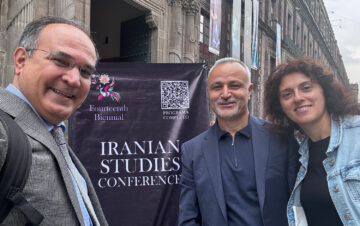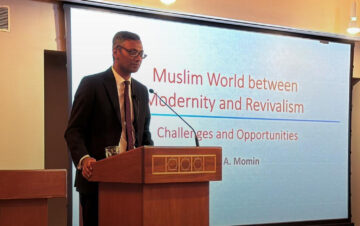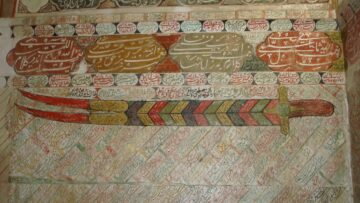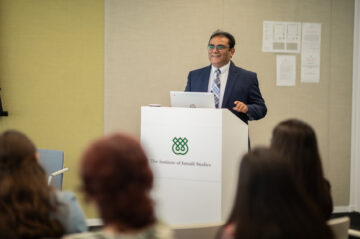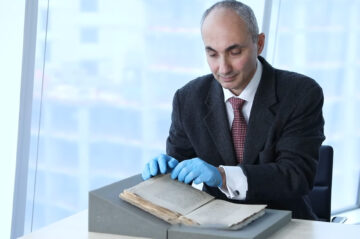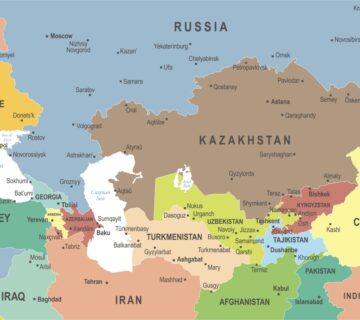Dr Badakhchani’s paper was on the “Notion of paradise in the Ismaili works of Nasir al-Din Tusi”. Tusi was a prominent philosopher and astronomer (d. 672AH /1271 CE), to whom over 150 books and treatises on a variety of subjects have been attributed. During his association with the IsmailisAdherents of a branch of Shi’i Islam that considers Ismail, the eldest son of the Shi’i Imam Jaʿfar al-Ṣādiq (d. 765), as his successor. (lasting approximately 30 years), he composed a number of books on Nizari Ismaili religious thought. The notion of paradise plays a prominent part in his works. Tusi’s mastery of various disciplines and Ismaili religious thought enabled him to render a comprehensive view on Ismaili eschatology which influenced various Muslim schools of thought, including the school of Isfahan and some Shi‘i authors, following Mulla Sadra and Mirdamad. The paper presented by Dr Badakchani situated Tusi’s thought in the historical and comparative framework of other Ismaili authors such as Hamid al-Din Kirmani, Abu Ya‘qub Sijistani and Nasir-i Khusraw.
Maryam Rezaee spoke on “Ismaili women and their participation in tertiary education in Iran”.
The paper explored some of the factors encouraging Iranian Ismaili women’s participation in higher education. Parental commitment and support for tertiary education was found to be a common element among all respondents in her study. Some other facilitating factors included the perception of university life by the students themselves. From their viewpoint, university was the only place that offered a unique mix of knowledge and experience. They believed that their education would help them to participate in society and avoid marginalisation, thereby making them better citizens as well as better mothers. Ms Rezaee noted in her paper that the young Iranian women who embarked on higher education were seeking autonomy and independence as well as to change their social status.
The two papers were well-received and generated lively discussions.

